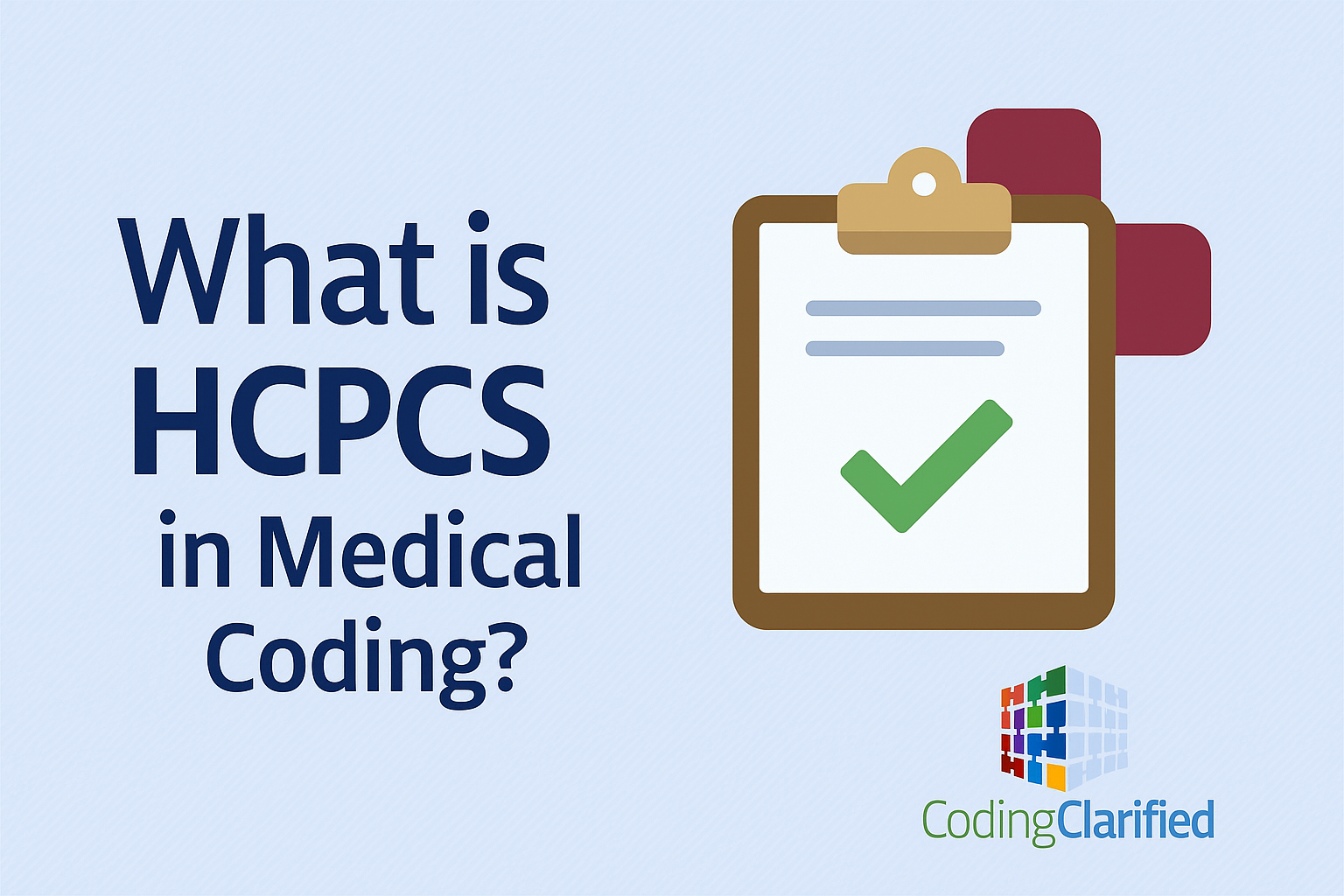When it comes to medical coding, understanding the different code sets is essential for accurate billing and reimbursement. One such code set that plays a critical role in healthcare services is HCPCS. But what is HCPCS in medical coding?
Understanding HCPCS
HCPCS (pronounced “hick-picks”) stands for Healthcare Common Procedure Coding System and is a standardized coding system used to describe specific items and services provided in the delivery of healthcare. It was developed by the Centers for Medicare and Medicaid Services (CMS) to ensure uniformity in billing and data collection across the United States.
HCPCS codes are primarily used for:
-
Billing Medicare, Medicaid, and other insurance programs
-
Tracking utilization of supplies and services
-
Facilitating claims processing
Levels of HCPCS Codes
HCPCS is divided into two levels, each serving a unique purpose:
Level I: CPT Codes
Level I consists of the Current Procedural Terminology (CPT) codes, maintained by the American Medical Association (AMA). These are five-digit numeric codes used for:
-
Physician services
-
Outpatient procedures
-
Diagnostic services
While CPT codes fall under the HCPCS umbrella, they are commonly referred to separately due to their widespread use in general medical coding.
Level II: HCPCS Codes
Level II HCPCS codes are alphanumeric and start with a letter (A–V), followed by four numbers. These codes cover:
-
Durable medical equipment (DME)
-
Prosthetics and orthotics
-
Ambulance services
-
Medical supplies
-
Certain drugs and biologicals
For example, A0428 is the code for Basic Life Support, non-emergency ambulance transport.
Coding Clarified related blogs
HCPCS Coding For Drugs https://codingclarified.com/hcpcs-coding-drugs/
Medical Coding HCPCS Medical Supplies https://codingclarified.com/medical-coding-hcpcs-medical-supplies/
Why HCPCS Matters
HCPCS codes are crucial for coders working with government payers and in outpatient settings. Without accurate use of HCPCS codes, healthcare providers may face claim denials, delayed payments, or compliance issues.
These codes also help standardize reporting and data collection across facilities, improving the consistency of healthcare statistics and analytics.
If you’re pursuing a career in medical coding or billing, mastering HCPCS is just as important as understanding CPT and ICD-10 codes. With changes and updates published annually, staying current with HCPCS guidelines is key to success in the healthcare reimbursement field.
HCPCS code free lookup by ICD-10 data .com https://hcpcs.codes/a-codes/

